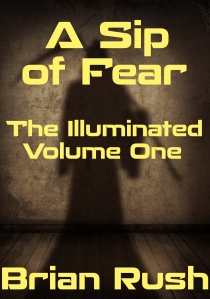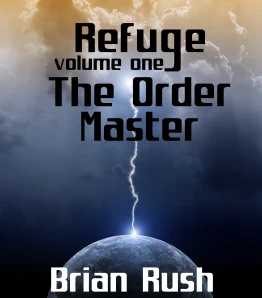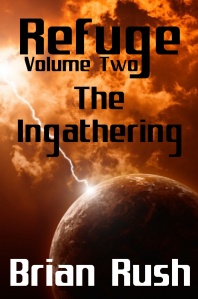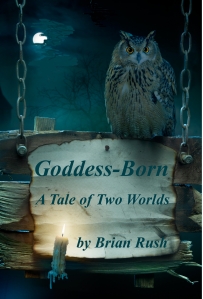In the process of building a fantasy world, a lot of things need to be considered and made appropriate for the world as a whole. Religion is certainly one of these. It’s best to begin with a real world, past or present, or something resembling it in many ways, and then add in fantasy elements and their logical consequences. That’s true of politics, commerce, international relations and war, class relations, and everything else about society.
Specifically in regard to religion, here are some ideas.
Religion, I believe, comes from three interacting sources. The first source is spiritual experience and the attempt to express its meaning, both to encourage people to seek and find spiritual experiences of their own and to translate the insights gained from spiritual experience into a form that can help both individuals and society. The second source consists of the customs, moral values, and social rules that govern a people on a level more basic than written law. Religion codifies these and infuses them with sacred authority by means of myth.
Note that these two sources of religion are sometimes in conflict. Spiritual experience calls for things to change, while custom and tradition call for continuity. A prophet always challenges orthodoxy, either rejecting the prior religious teaching altogether (as in the case of Muhammad in his interaction with Arabic polytheism or the Buddha with Vedic proto-Hinduism), or calling for such overwhelming reinterpretations that the result is effectively the same (as in the case of Jesus’ approach to the Judaism of his time, or Baha’u’llah’s overhaul of Islam). However, it’s also true that what was once radical and new eventually becomes a tradition, an orthodoxy of its own.
The third source of religious ideas and doctrines is political and self-serving: the desire of the religion as an organization, or of those people who hold power in it, to advance its influence and control, to gain more followers, to prevent apostasy, to compete successfully with other religions.
These same three sources will be there with fantasy religions, too, but there may also be fantasy factors to consider — although there may not, too. It depends on what the fantasy elements are in your world and where they manifest.
Let’s begin with the mundane (non-fantastic) considerations regarding the place of any given religion in the world.
Almost all historical societies have or had an established religion as part of, or integrated with, the government. Some modern societies, such as the United States, do not. The established religion of a society has certain privileges with respect to other, competing religions, at minimum official verbal endorsement by the state, and sometimes a spectrum of material advantages running from tax breaks, to direct financial subsidy, to requirements that citizens or residents participate in public rituals to some degree, to actual outlawing of other faiths.
Societies without an established religion generally have a relatively high level of religious conflict within their borders. For example, the English colonies in America saw a lot of conflict among competing versions of Christianity, especially in New England, which was founded as a number of religious experiments by fiercely-independent and often fanatical Puritans. This led to insistence on religious liberty and separation between church and state in the founding of the United States. However, lack of an established faith isn’t an automatic result of such conflict. It’s at least as likely that the end result can be an established faith either with rights of competing religions carefully guaranteed (as in modern England), or with a militant and intolerant approach where the established religion and the state together attempt to eradicate all competition (as in Spain under Ferdinand and Isabella). Unlike republican government, lack of established religion doesn’t seem to be an inevitable consequence of modernity, so having a modern, high-technology society with an established religion can work. Nor is it theoretically impossible to have a lower-technology society without an established religion and yet, since all such societies in real history are modern, a secular state in a low-technology environment requires justification to make it feel true.
If your society does have an established religion, it may be important to determine what form the “establishment” takes — depending on how much impact the established religion, or the state itself, has on your characters and your story. You should always have some idea of the answer to this question even if it doesn’t directly come into the story. One important question is the status of other religions. Is the society of your story more like the Roman Republic, which had an established religion but also allowed religious liberty, or is it more like modern Iran, where religions competing with the official faith operate under severe restrictions?
(Writers of fantasy should study history. They should also study science. In fact, they should study everything.)
In addition to these ordinary considerations, in creating a fantasy world you need to consider the fantasy elements, too, and these are likely — but not required — to have a big impact on its religious life.
Are there real, tangible gods? If there are, does the official faith (or a competing faith) worship them? If so, do the priests or religious teachers have the first idea what the gods are really like and what they really want and expect from their worshipers?
Do the gods care? Is the society a literal theocracy — meaning, not one run by a religion, but one run by an actual god? Are the gods somewhat aloof, with people trying their best to draw divine favor but having no real idea how to go about it? Do the gods expect and demand worship or merely tolerate it? If they don’t expect worship, what do they expect from men and women?
What about magic? Are priests also magicians? If they are, how do they use their powers to further the interests of the faith, and what conflicts occur among them as they seek power or the furtherance of their own beliefs within the religion’s framework? If they aren’t, is there another religion whose priests are? Is this religion new, or has it been around a while? If it’s new, what changes is it bringing? If it’s not new, what secrets, mysteries, and knowledge does it guard, and where is this going to take the new society in the future, as those secrets and mysteries develop.
All of these and other considerations, such as the effect of quasi-humans on the religious life of the community, should be taken into thought as you build your world.
Image credit: slanas / 123RF Stock Photo












